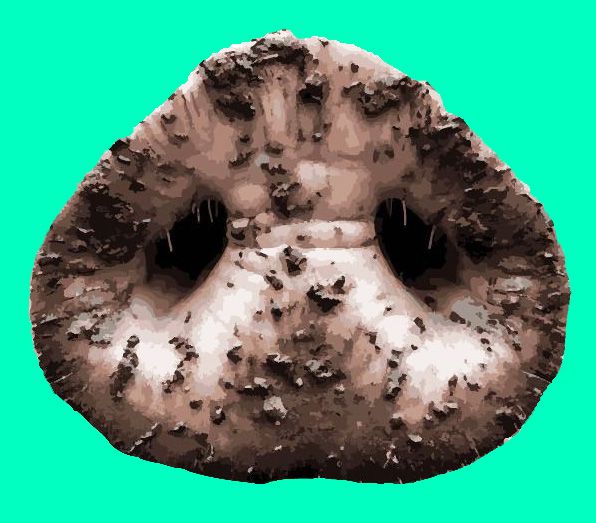Rootling as Research
An introduction
Rootling is when pigs use their snout to upturn the earth and seek out food, to socially engage others, and to learn about their environment. 1 It is about nourishment but also exploration and discovery.
While the primary task on this website is to wander and wonder about pigs, ROOTLING/the rootling place, however, is not merely an archive about pigs and their relations. It is part of a broader project and experiment of thinking with and through pigs. Here, rootling is an approach to research that is conceptual, methodological, and multispecies.
Scattered across the landscape alongside porcine content you will find 10 critical reflections tagged as ROOTLING. Together these patches of thought explore what rootling might do for research. This text unpacks the process and reasons why we/the sounder adopted the term "rootling" and highlights the potential methodological interventions this offers. It begins by considering our obligations to pigs through proper acknowledgement and representation; explores how rootling encourages a playful, patchwork, plotless. and collaborative approach; and unpacks how the website is designed to perform rootling.

Look for these coloured Points of Interest to read a patchy essay
Throughout the text, the concept of rootling fluidly moves between metaphor and method. As metaphor, we draw inspiration from our ongoing dialogue with pigs to cultivate a research ethos that values non-linearity, thoroughness, passion, and uncertainty. As method, rootling urges us to work with diverse knowledges and overlooked resources, pursue spontaneous, stimulating, even if frivolous paths, and collaborate with colleagues in supportive and generative ways. Although our own research falls under the multispecies methods - a field that focuses on analysing relations with nonhuman beings2 - we hope that rootling contributes to any type of research that values good relations.
Playfulness is a repeating theme throughout many of these entries. Rootling allows us to bring play and other overlooked or devalued aspects of the research process closer to the surface. By playfulness, we refer to a “disposition” or a “mood”, a light-hearted and creative readiness to produce meaning and something new with others.3 While often demarcated, play and “serious” work are not necessarily distinguishable.4 Play is fundamental and imperative to life and community 5 and also essential to our science making.
Like everything on this website, the text is distributed across the landscape of this virtual rootling place, and is designed to be read in a piecemeal or non-linear manner, tasting it at your leisure as you rootle through the website’s heterogenous porcine content. You can also follow the embedded links in each post, which jump back and forth between sections and occasionally take you beyond this essay.
If you prefer a more structured read, click on the tag ROOTLING to gather the posts together and read them in a linear direction from first to last in the side Menu bar.
Footnotes
-
Stolba, A. & Wood-Gush, D.G.M., 1989. "The behaviour of pigs in a semi-natural environment." Animal Science, 48(2): 419-425.; Studnitz, M., Jensen, M.B. & Pedersen, L.J., 2007; "Why do pigs root and in what will they root?: A review on the exploratory behaviour of pigs in relation to environmental enrichment." Applied animal behaviour science, 107(3-4): 183-197. ↩
-
for example: Ogden, L.A., Hall, B. & Tanita, K. 2013. "Animals, plants, people, and things: A review of multispecies ethnography." Environment and society, 4(1), pp.5-24.Van Dooren, T., Kirksey, E. & Münster, U., 2016. "Multispecies studies: Cultivating arts of attentiveness." Environmental Humanities 8(1): 1–23; Hartigan Jr, J. 2021. "Knowing animals: Multispecies ethnography and the scope of anthropology." American Anthropologist, 123(4): 846-860. ↩
-
Karoff, H.S. 2013. "Play practices and play moods." International Journal of Play, 2(2): 76-86. ↩
-
Huizinga, J. 1949. Homo Ludens. Routledge & Kegan Paul: London. ↩
-
Sydnor, S. & Fagen, R. 2012. "Plotlessness, ethnography, ethology: play." Cultural Studies. Critical Methodologies, 12(1): 72-81. ↩